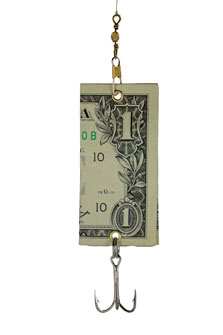When considering Fiduciary Responsibility, here are other interesting and important concepts from Firestein’s work that indicate just how complex navigating the mandate of Fiduciary Responsibility can be: Bribery: “….doing the right thing is not always consistent with a company’s sustainability. Bribery, for example, has been an unavoidable cost of doing business at many times and in many places.” (p. 74). Core values: “Everyone in an organization must understand what it wants to be known for. ... Continue Reading
Increasingly Difficult to Hide
In his book, “Crisis of Character,”[1] author Peter Firestein alerts us to the fact that in the internet age, there is no place for a corporation, or an individual to hide. In today’s world, corporations and individuals do not, and never will again, exist in a social vacuum, or any kind of vacuum for that matter. Hence, reputation and character are assets requiring effective management and, as Firestein contends, are more critical now than ever before. Today’s world requires candor and ... Continue Reading
Fiduciary Responsibility Gone Wild
In my 30 years of practice, I have noticed that aside from those with sincere malicious motivations, Fiduciary Responsibility is especially in peril when you mix business with pleasure. For instance, I recall one troubled patient who lived with a high producing major firm broker for more than 15 years. They were never married and have since parted. They had co-owned an elaborate, beautiful home together in an exclusive suburb of Connecticut. He managed her money and she proceeded to watch ... Continue Reading
Thinking of Someone Else’s Needs
In an industry where Greed is Good, Fiduciary Responsibility seems almost counterintuitive, sort of akin to requiring selflessness in an industry that rewards selfishness. Yet, Fiduciary Responsibility is the law of the land. Therefore, establishing a strategy for maintaining, reconciling, or if necessary, rehabilitating your personal understanding and application of Fiduciary Responsibility is an important component of the Wall Street Psychologist’s Gyroscope. This is easier said than ... Continue Reading
Fiduciary Responsibility
I wonder what Scottish historical novelist and poet Sir Walter Scott would say of the oft-insidious nature of the financial services landscape. He who wrote the immortal words: “Oh! what a tangled web we weave, when first we practice to deceive!”[3] Perhaps nowhere on Wall Street are these webs so intricately woven then when it comes to the subject of Fiduciary Responsibility. Ultimately, to be successful and reputable, the financial services professional needs to understand and practice ... Continue Reading
Pride Goeth Before Destruction
In the King James Version of the Holy Bible, Proverbs 16:18 warns that "Pride goethe before destruction, and a haughty spirit before a fall." In no segment of society does this adage fit so snugly than in Wall Street. How is it that these brilliant economic theorists from Harvard, MIT, and Cal Tech make such epic mistakes? How is it that so many astute business minds, fixated obsessively on the minutiae of the market, fail to see the massive hurricane bearing down on them, until they are ... Continue Reading
The Smartest Guys in the Room?
Widespread superciliousness, arrogance, narcissism and class-consciousness permeate Wall Street at all levels—which is party incubated in business school. The Wall Street Psychologist’s Gyroscope advocates that the individual remove these blinders and embrace the humility that provides clarity. A sense of entitlement is a mind trap. The humble individual can think more objectively and reverse course more easily than the overconfident narcissist. American humorist Calvin Trillin provided an ... Continue Reading
The Limitations of An Education in the Abstract
Business school doesn't teach you how to have courage and imagination. It does not teach you how to assess and trust people. It does not teach you to be aware of, and how to utilize your instincts. It does not teach you how to survive and prosper in a world riddled with money madness, severe stress, emotional abuse, betrayal, deception and fear are common and omnipresent. Once you finish B-School, you need to build your own Gyroscope to insure your emotional and professional ... Continue Reading
What They Did Not Teach You in Business School
Why did you get into this business? Think back to your MBA program. Obviously, a career path that led you into the financial sector must have been motivated by promises of vast riches. But, was money a reason you went to business school? Or, was it the reason you opened this door and stepped through? If your entire professional life has been predicated on the pursuit of money and power, your life plan has a fundamental flaw. Sure, business school can better equip you to be a ... Continue Reading
How Do You Define Your Character?
When reviewing this section, think about how you, as an FP, would respond to incidences of the “Structural Corruption” Firestein describes. Think about what character means to you. Think about virtue. Think about integrity. Think about your value as a person, independent of your portfolio. Character is a good place to start, whether you are defining or re-defining yourself as a Wall Street financial professional. Character has many common definitions, yet I prefer to define the term as the ... Continue Reading
The Importance of Character
The driving force behind this section is to provide the FP with the context to develop and maintain an effective Gyroscope that will facilitate long-term success and satisfaction. It is not so easy. In his book “Crisis of Character—Building Corporate Reputation in the Age of Skepticism”[1]—a revealing examination of “how the psychology and culture of corporate life determine both short- and long-term business outcomes”— author Peter Firestein introduces a series of original concepts, ... Continue Reading
A New Way to Look at an Old Profession
In previous sections, we explored the history of money and financial systems, while interpreting the evolution of economic theory, through the lens of psychologist. Now, we seek to define the modern Wall Street financial professional, based on my observations as a psychologist treating FPs for more than 30 years. Included throughout the following observations, analyses, and guidance are dramatic, perhaps disturbing, anecdotes. Unfortunately, these anecdotes are all too real and represent ... Continue Reading
Why Are You Reading This Book?
There are those who will read this blog who are not concerned with such honest self-assessment. This may be one of many blogs they are scanning, perhaps to gain some psychological short-cut to propel them into a higher bonus bracket. Others may plow through these pages, desperately seeking to discern some marketing mind trick with which to further dupe their clients, managers, firms. Those are not my target readers. While I am not so self-enamored to believe all who read this blog absolutely ... Continue Reading
Embracing Integrity, Rediscovering Virtue
Mark Twain and others have long taken their swipes at the denizens of the Street. Yet, there may be some credence to their character assassinations. When you define the concept of the Wall Street professional, should character, virtue, and integrity be requisite components of that definition? The fundamental purpose of this blog is to enable the individual to develop a sound Wall Street Psychologist’s Gyroscope, as a means to facilitate long-term personal and professional ... Continue Reading
The Modern Financial Services Professional
Not nearly as maligned as lawyers, practitioners of the financial arts still have long suffered a dubious reputation in our culture. For instance, consider that Mark Twain (Samuel Clements), the epic American writer of legendary proportion, had some rather negative, though certainly amusing, observations concerning money, the stock market and stockbrokers. In “Mark Twain’s Notes,” on the subject of money, he wrote: “Some men worship rank, some worship heroes, some worship power, some ... Continue Reading
Chapter-By-Chapter Guidance – Chapter 13: The Use of Spies
What Sun Tzu Wrote: “Knowledge of the enemy's dispositions can only be obtained from other men.” What This Means to the Modern Financial Professional: Sun Tzu wisely noted that “foreknowledge cannot be elicited from spirits; it cannot be obtained inductively from experience, nor by any deductive calculation.” Though such due diligence is essential, it is not a substitute for the intelligence that can be obtained through relationships. This is one area where zealous financial ... Continue Reading
Chapter-By-Chapter Guidance – Chapter 12: The Attack by Fire
What Sun Tzu Wrote: “There are five ways of attacking with fire. The first is to burn soldiers in their camp; the second is to burn stores; the third is to burn baggage trains; the fourth is to burn arsenals and magazines; the fifth is to hurl dropping fire amongst the enemy.” What This Means to the Modern Financial Professional: Interpreting this section requires an ability to conceive how environmental circumstances can be bent to facilitate success. Assess the opponent’s ... Continue Reading
Chapter-By-Chapter Guidance – Chapter 11: The Nine Situations
What Sun Tzu Wrote: “The art of war recognizes nine varieties of ground: (1) Dispersive ground; (2) facile ground; (3) contentious ground; (4) open ground; (5) ground of intersecting highways; (6) serious ground; (7) difficult ground; (8) hemmed-in ground; (9) desperate ground.” What This Means to the Modern Financial Professional: The FP must plan for all contingencies and circumstances. This does not guarantee success, nor is it always practical. Yet, it minimizes the possibility of ... Continue Reading
Chapter-By-Chapter Guidance – Chapter 10: The Terrain
What Sun Tzu Wrote: “Hence the saying: If you know the enemy and know yourself, your victory will not stand in doubt; if you know Heaven and know Earth, you may make your victory complete.” What This Means to the Modern Financial Professional: The FP must be constantly surveying all elements of a situation to uncover opportunity, such as local market influences and idiosyncrasies, to gain a psychological advantage. It is not enough to know your own strength and your opponent’s ... Continue Reading
Chapter-By-Chapter Guidance – Chapter 9: The Army on the March
What Sun Tzu Wrote: “When an invading force crosses a river in its onward march, do not advance to meet it in mid-stream. It will be best to let half the army get across, and then deliver your attack.” What This Means to the Modern Financial Professional: On the surface, this is one of the more challenging sections to apply to the business world, unless you consider the context of mobility, both in terms of literal physicality of evolving events as well as the conceptual. Whether it is ... Continue Reading
Chapter-By-Chapter Guidance – Chapter 8: Variation in Tactics
What Sun Tzu Wrote: “In warfare we ought to vary our tactics to the utmost degree.” What This Means to the Modern Financial Professional: This section speaks to the dangers of complacency. The savvy FP must vary his tactics, be flexible, and respond to shifting circumstances quickly and successfully. As espoused in the Wall Street Psychologist’s Gyroscope, the FP must ever aspire towards betterment, regardless of previous accomplishments. Just as the markets are continually morphing, ... Continue Reading
Chapter-By-Chapter Guidance – Chapter 7: Maneuvering
What Sun Tzu Wrote: “The difficulty of tactical maneuvering consists in turning the devious into the direct, and misfortune into gain.” What This Means to the Modern Financial Professional: In this section, Sun Tzu emphasizes the value of guile, to deceive your opponent into a point of passivity before capitalizing with a swift stroke. This, again, is an area fraught with psychological danger. When the stakes are dollars, not lives, the level of deception must not exceed your personal ... Continue Reading
Chapter-By-Chapter Guidance – Chapter 6: Weak Points & Strong
What Sun Tzu Wrote: “He who can modify his tactics in relation to his opponent and thereby succeed in winning, may be called a heaven-born captain.” What This Means to the Modern Financial Professional: Rarely are all deciding factors constant. The market is constantly in flux, its participants ever jockeying for position. The FP must not rely on snapshot observations to make all future determinations, but instead establish processes for constantly surveying clients, competitors, and ... Continue Reading
Chapter-By-Chapter Guidance – Chapter 5: Energy
What Sun Tzu Wrote: “Thus the energy developed by good fighting men is as the momentum of a round stone rolled down a mountain thousands of feet in height.” What This Means to the Modern Financial Professional: There are rarely level playing fields in the financial services industry. To think otherwise is to be naive. Momentum and perfectly timed tactics will enable the FP to make optimal use of resources and opportunities, regardless of how formidable the opposition. This approach to ... Continue Reading
Chapter-By-Chapter Guidance – Chapter 4: Tactical Dispositions
What Sun Tzu Wrote: “Hence the skillful fighter puts himself into a position which makes defeat impossible, and does not miss the moment for defeating the enemy.” What This Means to the Modern Financial Professional: Patience is a virtue, though one hard to exercise in the frenetic world of the FP. Sun Tzu counsels the patience to perform exceptional observation, to assess vulnerabilities, coupled with defensive posturing to disguise your own weakness. Do not always seek to create ... Continue Reading
- « Previous Page
- 1
- 2
- 3
- 4
- …
- 6
- Next Page »























